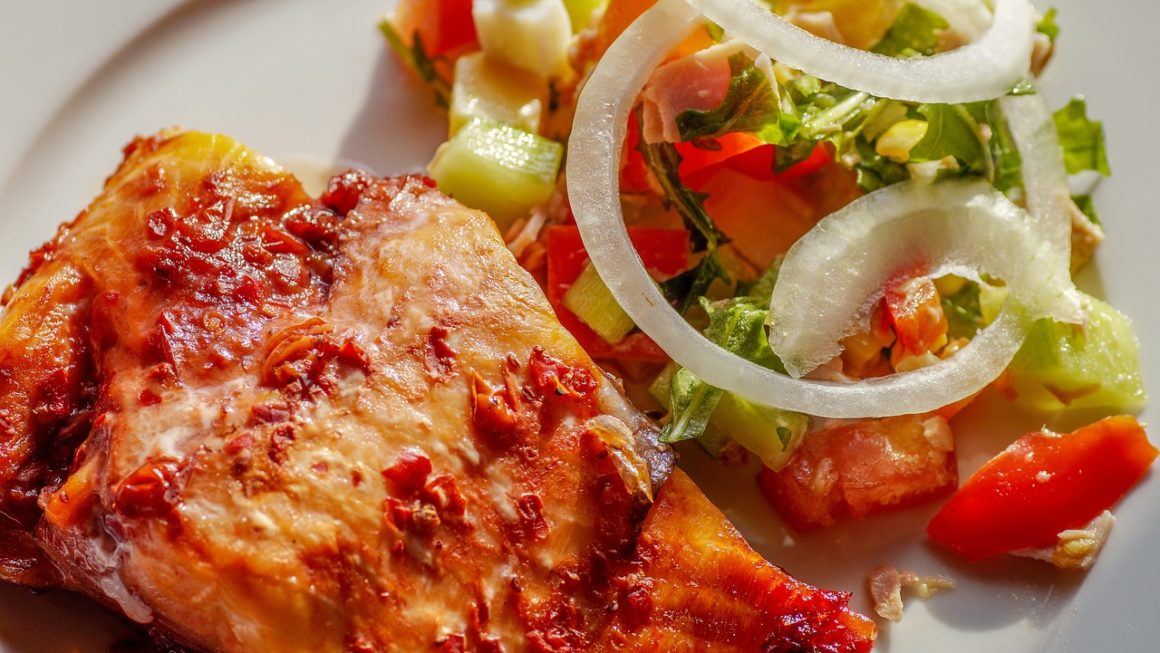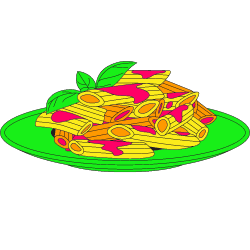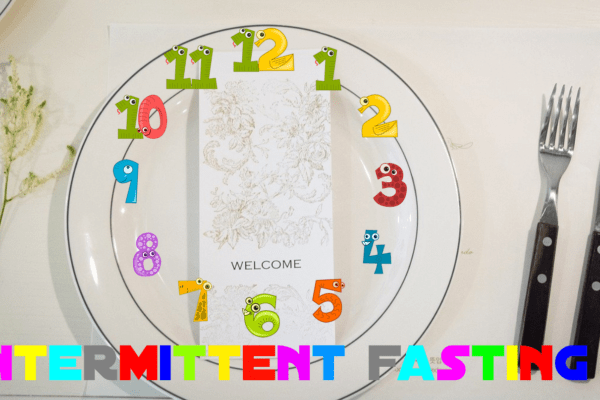The Mediterranean diet is an easy way to eat well. The main thing in the diet is the replacement of animal fats with vegetable ones, as well as the daily consumption of fish and seafood – sources of iodine and omega-3. Research suggests that they help improve metabolic function.
The diet itself is based on the use of fresh vegetables and aromatic herbs – with a moderate amount of cereals. Dairy products are allowed in small quantities, and meat – no more than once a week. Also, the Mediterranean diet allows wine.

The Mediterranean diet is a generalization of the eating habits of people in Portugal, northeastern Spain, southern France, Italy, Greece and other Mediterranean countries. The term was coined by American nutritionist Ansel Keyes in the 1940s and has been popular method for weight loss since the 1990s.
Mediterranean diet versions vary by country, as well as the list of foods available in that region. At the same time, the healthiest, Italian version of the diet, which they call “cucina povera”, translates as “food for the poor.”
Studies show that a Mediterranean diet reduces the risk of heart disease by 30% and the risk of developing cancer by 24%. In addition, long-term adherence to dietary principles is beneficial for diabetes and hypertension.
Nutrition principles
The main rules of the Mediterranean diet are the replacement of animal fats with vegetable oils, the use of large amounts of fresh vegetables, nuts, legumes, unpeeled cereals, as well as the daily use of fish and various seafood:
- Substitution of animal fats with vegetable oils – mainly olive oil; as well as avocados, various nuts (almonds, hazelnuts) and seeds.
- Eat lots of vegetables – Every meal on a Mediterranean diet should include seasonal vegetables and berries, and fruit should be consumed in moderation.
- Daily seafood consumption – the cuisine of the coastal countries is based on the use of fish and seafood in various variations.
- Replacing meat with lentils – The diet involves limiting the consumption of beef and poultry, while lentils and other legumes become a source of protein.
- Moderate amounts of wine are allowed – research suggests that a small amount of red wine is associated with longevity in the Mediterranean region.
Mediterranean diet for weight loss
Strictly speaking, the Mediterranean diet can be used for weight loss only when controlling the calorie content of the daily diet – the dietary rules and nutritional principles themselves do not impose restrictions on portion sizes or the ratio of fats, carbohydrates, and proteins.
On the other hand, replacing saturated animal fats with vegetable oils and unsaturated fats from marine fish actually helps you lose weight. The researchers also note the fact that the inhabitants of the Mediterranean countries lead an active lifestyle, doing a lot of daily work.

Why is the Mediterranean diet good for you?
First of all, the Mediterranean diet is beneficial due to the daily consumption of seafood – a key source of iodine. In addition, many types of fish also contain important omega-3s that the body needs to fight microinflammation.
Olive oil contains high levels of vitamins E and K, which are responsible for immunity and energy processes in the body. Among other things, the oleic acid contained in vegetable oils (up to 70% by volume) belongs to omega-9 fatty acids and is a strong natural antioxidant.
Basically, eating a Mediterranean diet lowers cortisol, improves metabolism and slows the aging process – both through healthy fats and the high amount of vegetables (sources of fiber and nutrients) in the diet.
The effectiveness of this diet for beauty and health
It’s no secret that any diet involves the rejection of a number of dishes. The Mediterranean diet is no exception, you will have to give up semi-finished products and fast food, as well as products containing hydrogenated fats. Everyone also knows that in order to start the process of losing weight, it is necessary to minimize the amount of calories consumed. As the most acceptable serving size, the unit of measurement known abroad as “cup” is adopted, equal to 237 ml, which is also equal to sixteen level tablespoons.
There are five meals a day, three full meals and two snacks. It is advisable to observe equal time intervals between meals, because the more evenly the calories enter the body, the more evenly they are spent. Exercise is also an integral part of any diet. Cycling, hiking, running, fitness and team sports will be helpful.
It is also important that the Mediterranean menu also helps to get rid of cellulite! This diet includes a large number of products – sources of vitamins A and E, useful for female beauty. They improve skin condition, give it a natural glow, hair – healthy shine and volume, and strengthen nails.
Nutritionists point out that carbohydrate-containing foods should be consumed as breakfast, and protein foods should be preferred for dinner. We replace sugar with honey or natural sweetener (stevia, beet sugar). Be extremely careful! You cannot add honey directly to hot tea or boiling water – this makes it a carcinogen!
Fluid intake plays an important role in the diet. Its main source is still drinking water, up to 2 liters per day. Forbidden: carbonated drinks, especially sugar-containing ones, even packaged fruit drinks, juices, they contain a large amount of fructose and a minimum of fiber, which does not contribute to weight loss at all.
You should also not get carried away with tea and coffee, especially with various flavors and additives. In the Mediterranean countries, preference is given to dry red wine of good quality, it has flavonoids useful for the body and is an amazing aperitif.


The Mediterranean diet is more than food
The Mediterranean diet is not only a diet, but also a traditional way of life inherent in the Mediterranean villagers. Habits such as eating together, eating long meals, siesta (afternoon naps) and physical activity are thought to contribute to the positive health effects of the Mediterranean diet.
Full breakfast. Start your day with fiber-rich foods such as vegetables and grains combined with olive oil and high-quality protein (fish, cheese, poultry, or eggs). This will help you feel full and full of energy throughout the day.
Joint meals. In the Mediterranean countries, it is customary to dine with family or friends, drink wine, talk and enjoy the taste. It strengthens social bonds and increases the amount of time spent eating. It takes time for the body to realize that it is full, and this happens with some delay. Therefore, a leisurely meal prevents overeating.
Physical activity. Eating natural foods and being physically active are the most important principles of the Mediterranean diet. A man in Crete in the middle of the last century would need at least 3,500 calories daily because he climbed and descended steep slopes and did a lot of physical work. To lose weight, or at least not gain weight, you must move more and sit less!
Daytime sleep. In some Mediterranean countries it is customary to sleep in the afternoon. But how can sleep help you fight excess weight? Research shows that lack of sleep decreases insulin production, which can lead to diabetes and obesity. In addition, naps relieve stress, improve focus, restore strength, lower blood pressure and lower the risk of heart attack.
List of foods for the Mediterranean diet

Vegetables: carrots, onions, broccoli, spinach, cabbage, garlic, potatoes and sweet potatoes, tomatoes, cauliflower, cucumbers
Fruits: apples, bananas, oranges, pears, grapes, dates, figs, melons, peaches, apricots
Berries: strawberries, blueberries and others
Frozen vegetables: choose blends with healthy vegetables
Whole grains: Whole grain bread, whole grain pasta, brown rice, buckwheat, rye, barley, corn
Legumes: beans, peas, lentils, chickpeas
Nuts: almonds, walnuts, cashews, hazelnuts, macadamia
Seeds: sunflower seeds, pumpkin seeds
Condiments: sea salt, pepper, turmeric, cinnamon, garlic, basil, rosemary
Fish and seafood: salmon, sardines, mackerel, trout, tuna, shrimp, oysters, shellfish, crabs, mussels
Dairy products: cheese, Greek yogurt and more
Poultry: chicken, duck, turkey
Eggs: chicken, quail, duck
Healthy fats: olives, olive oil, avocados
Sample menu
The first day
- Breakfast
Water with ginger and lemon
Oatmeal with milk, natural yoghurt and berries
- Second breakfast
Apples
- Lunch
Minestrone
Fish soufflé
Mashed potatoes with ghee
- Afternoon snack
Cherry jelly with yogurt
- Dinner
Mixed salad of avocado, red cabbage and chickpeas
Cucumber sauce
Steamed shrimp


Second day
- Breakfast
Baked granola with raisins, cranberries, chia seeds and nuts;
Almond milk
- Second breakfast
Water with ginger and lemon
Pear
- Lunch
Sauerkraut soup with porcini mushrooms
Haddock in lemongrass and aromatic salt
Quinoa tabbouleh with herbs and vegetables
- Afternoon snack
Banana
Lingonberry juice
- Dinner
Grilled Lemon Thyme Shrimp
Sauteed vegetables
Third day
- Breakfast
Omelet with vegetables
Green buckwheat bread with pine nuts
- Second breakfast
Pomegranate
- Lunch
Marseille seafood soup
Phalli from white cabbage
Rice mix with stewed vegetables and olive oil
- Dinner
Cod baked with Seasonal herbs
Blanched vegetables


Day four
- Breakfast
Orange-sea buckthorn cocktail
Spelled porridge in almond milk with figs and poppy seeds
- Second breakfast
Apples
- Lunch
Tomato, arugula and daikon salad
Balsamic sauce
Fusilli pasta with salmon in creamy tomato sauce with crispy broccoli
- Afternoon snack
Dried apricot sweets with seeds, almonds and protein
- Dinner
Salad leaves with tomatoes, cucumber and quail egg
Pesto
Seabass with pistachios
The Mediterranean diet is a generalization of the dietary rules in the Mediterranean countries. The diet includes the daily consumption of fish and seafood, large amounts of seasonal vegetables and the replacement of animal fats with vegetable ones. However, for weight loss, it is important to control the calorie content of the daily diet.
Which product is the highest in calories?
| Oops, sorry that answer is wrong. Olive oil (133 Cals) contains more calories than butter (108 Cals) and almond butter (98 Cals), but since it is liquid, we tend to consume less of it. Plus, unlike butter, olive oil contains monounsaturated fats, which help reduce high cholesterol, a leading cause of heart disease. | |
| Great, this is the right answer. Olive oil (133 Cals) contains more calories than butter (108 Cals) and almond butter (98 Cals), but since it is liquid, we tend to consume less of it. Plus, unlike butter, olive oil contains monounsaturated fats, which help reduce high cholesterol, a leading cause of heart disease. | |
| Oops, sorry that answer is wrong. Olive oil (133 Cals) contains more calories than butter (108 Cals) and almond butter (98 Cals), but since it is liquid, we tend to consume less of it. Plus, unlike butter, olive oil contains monounsaturated fats, which help reduce high cholesterol, a leading cause of heart disease. |

- Primary Prevention of Cardiovascular Disease with a Mediterranean Diet, source



